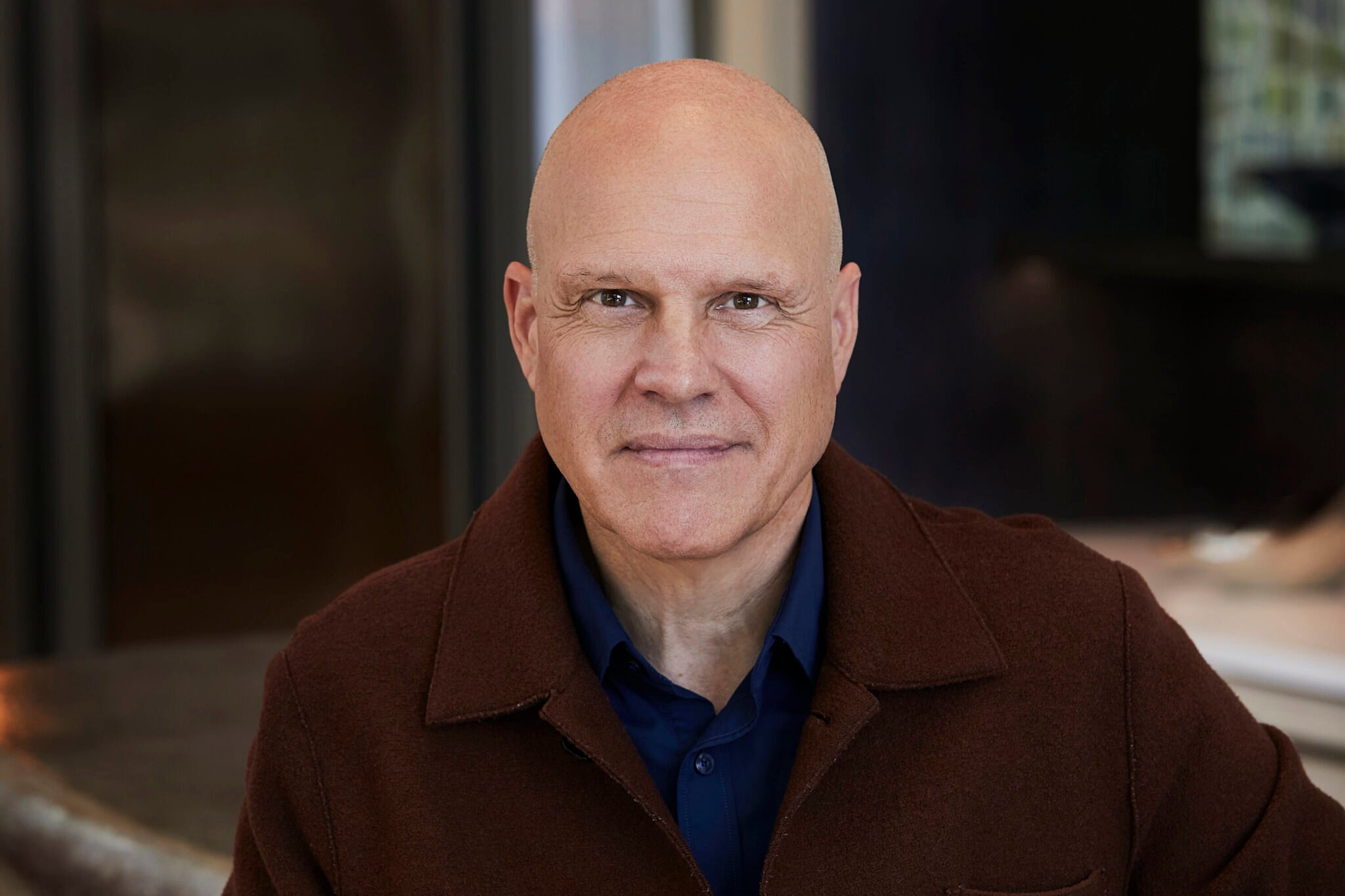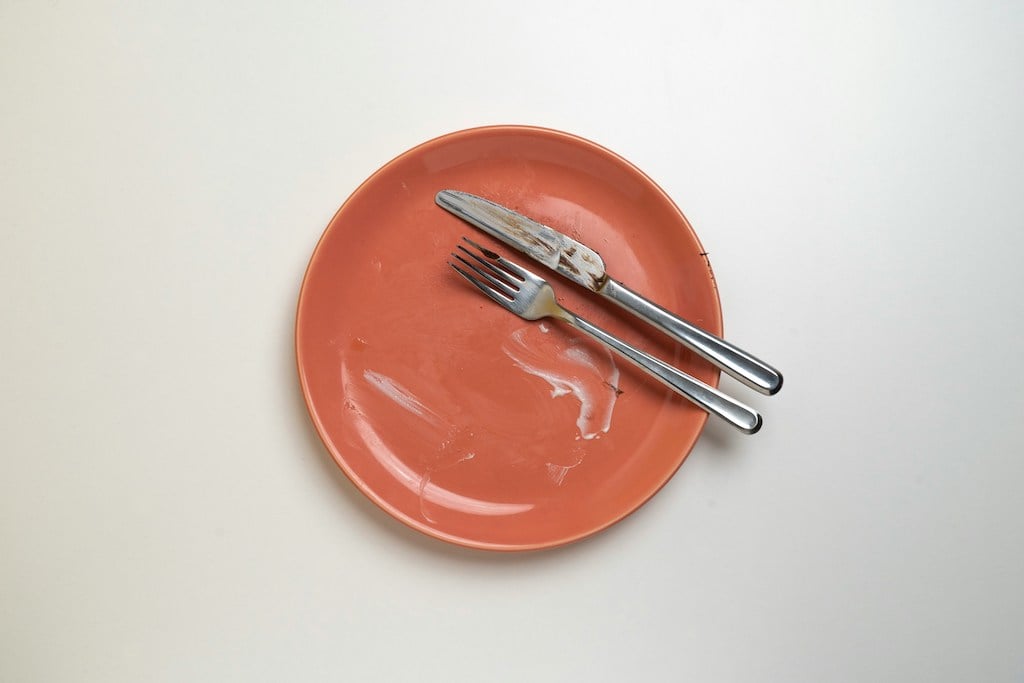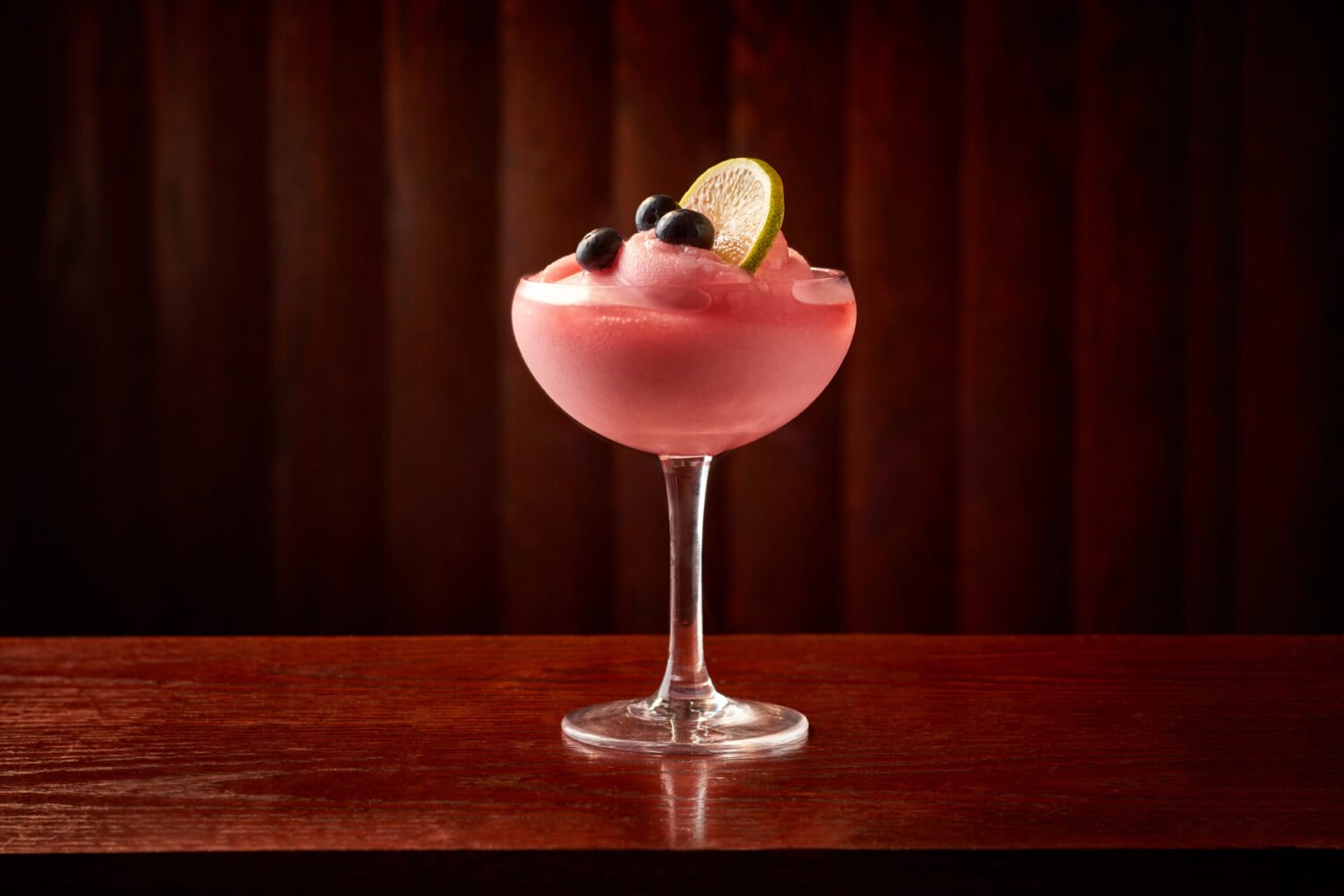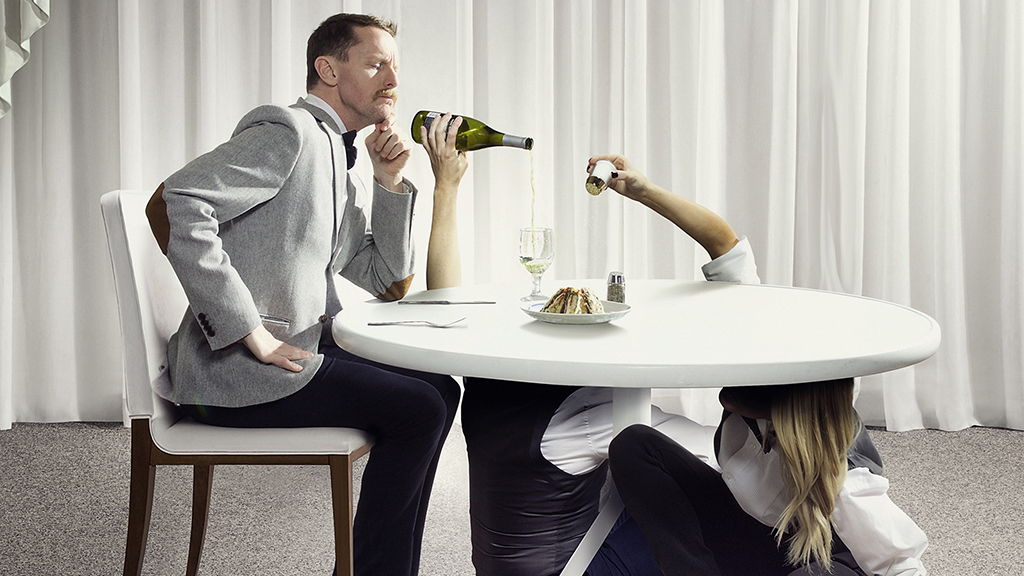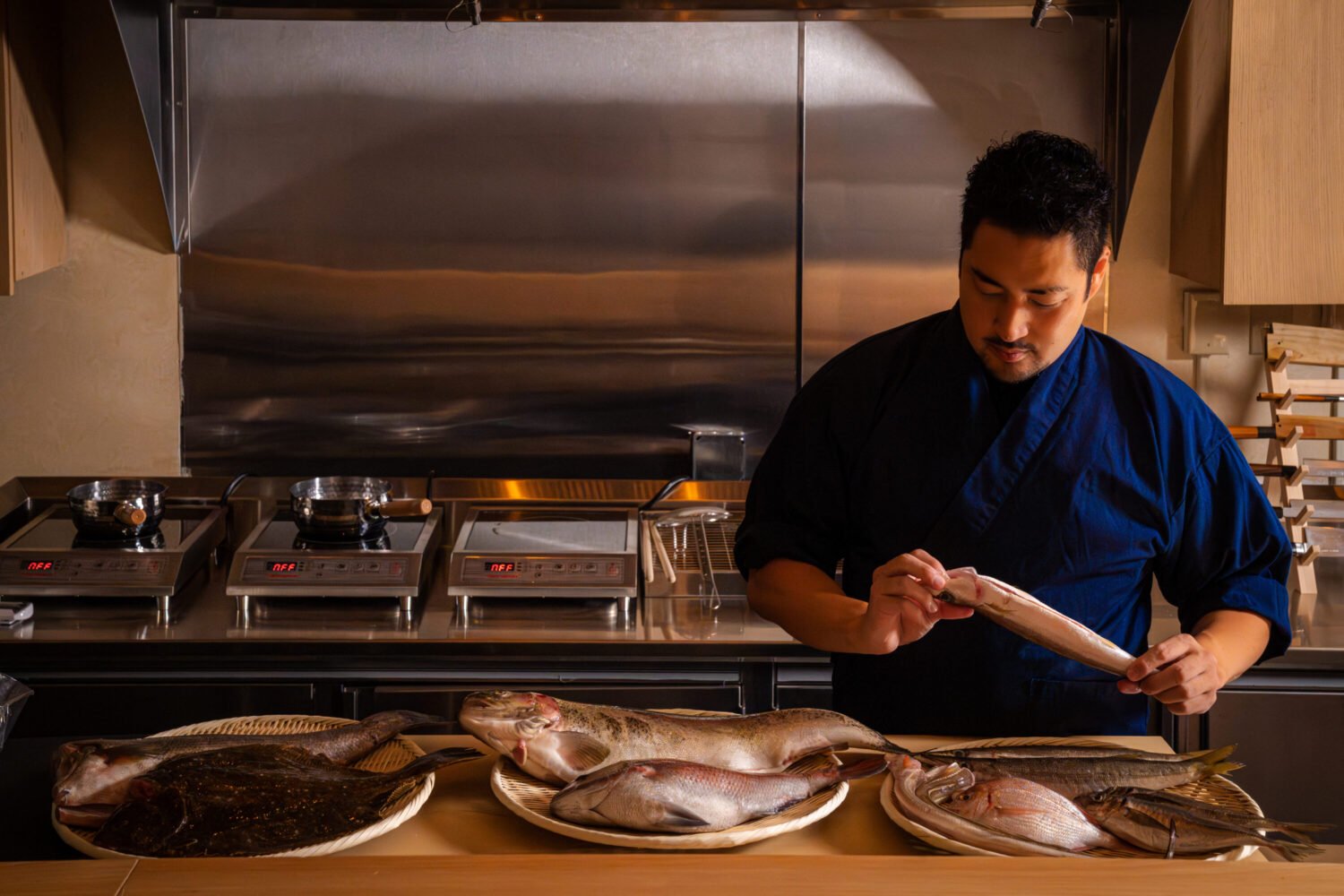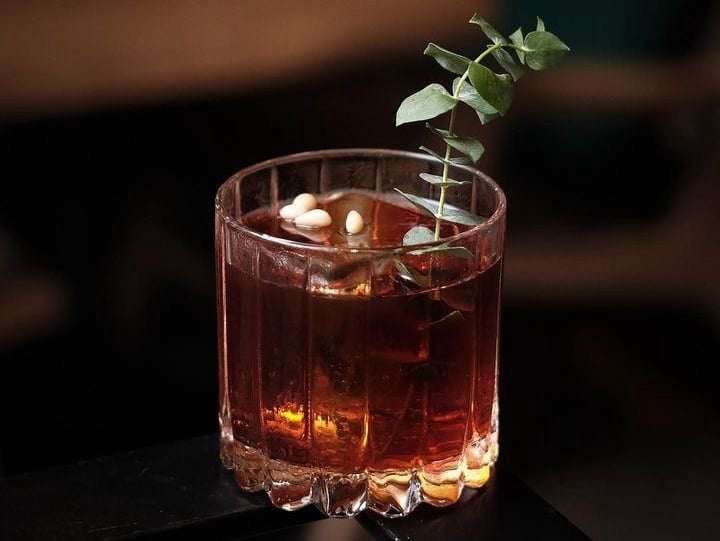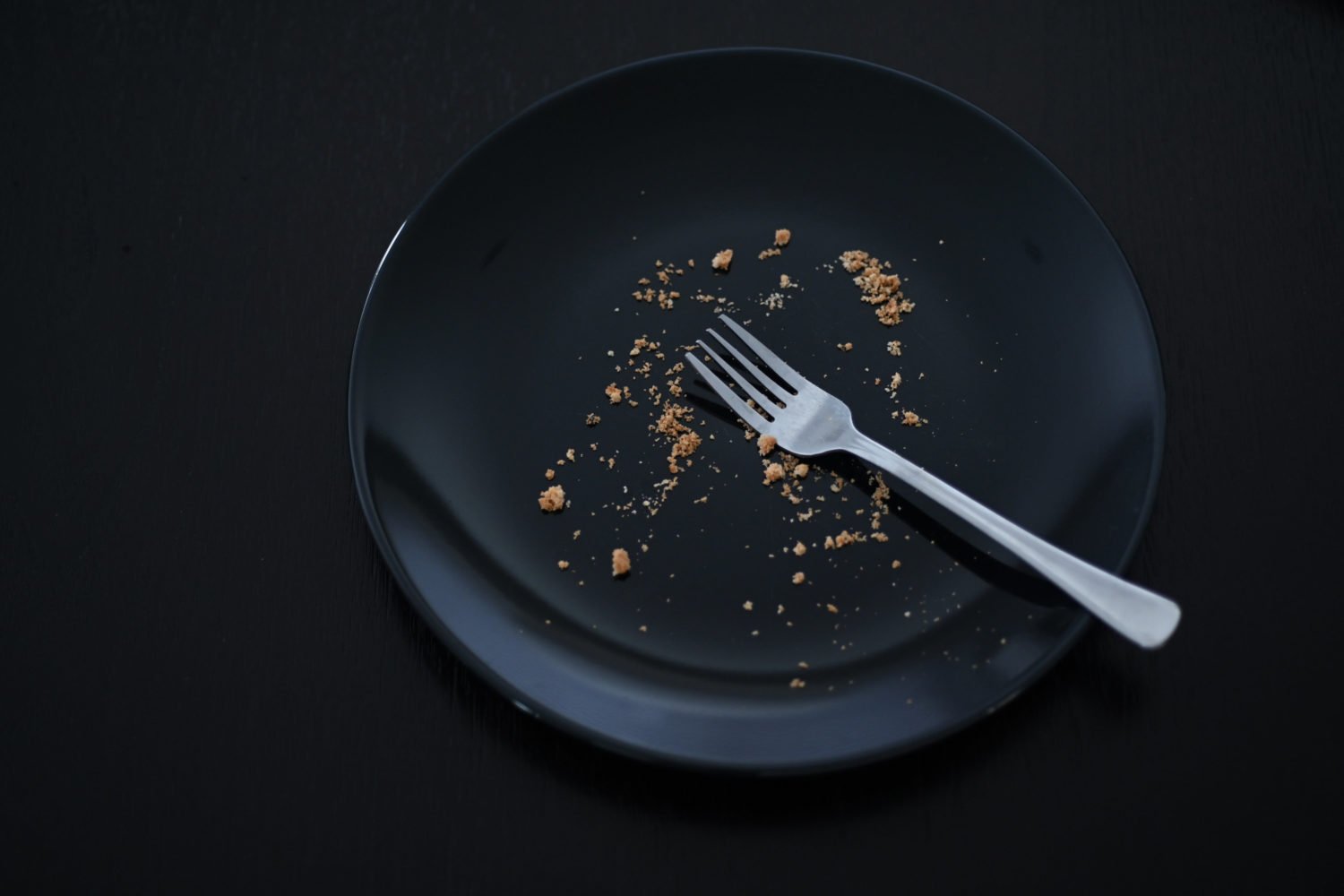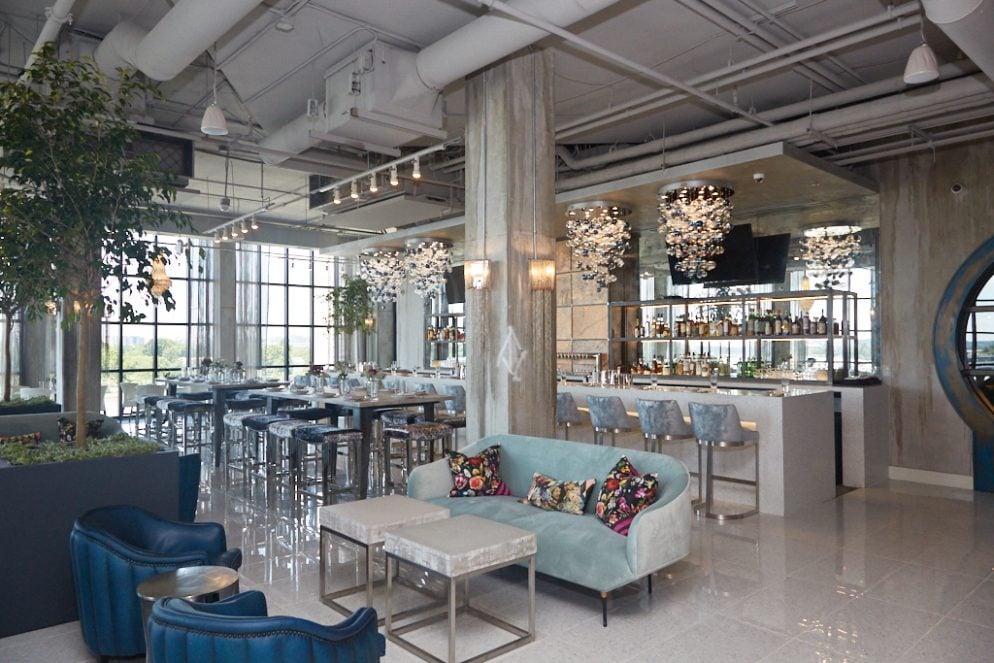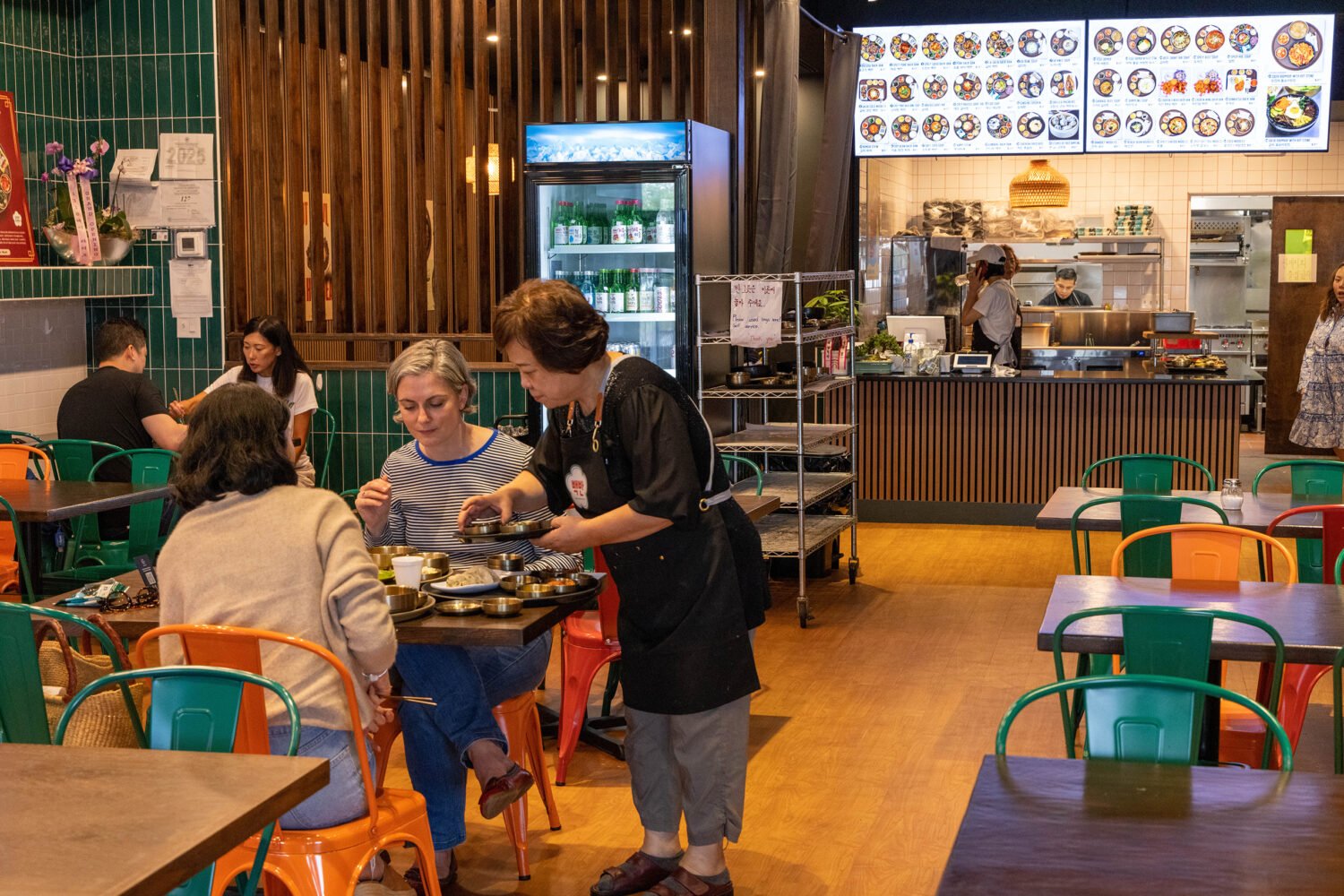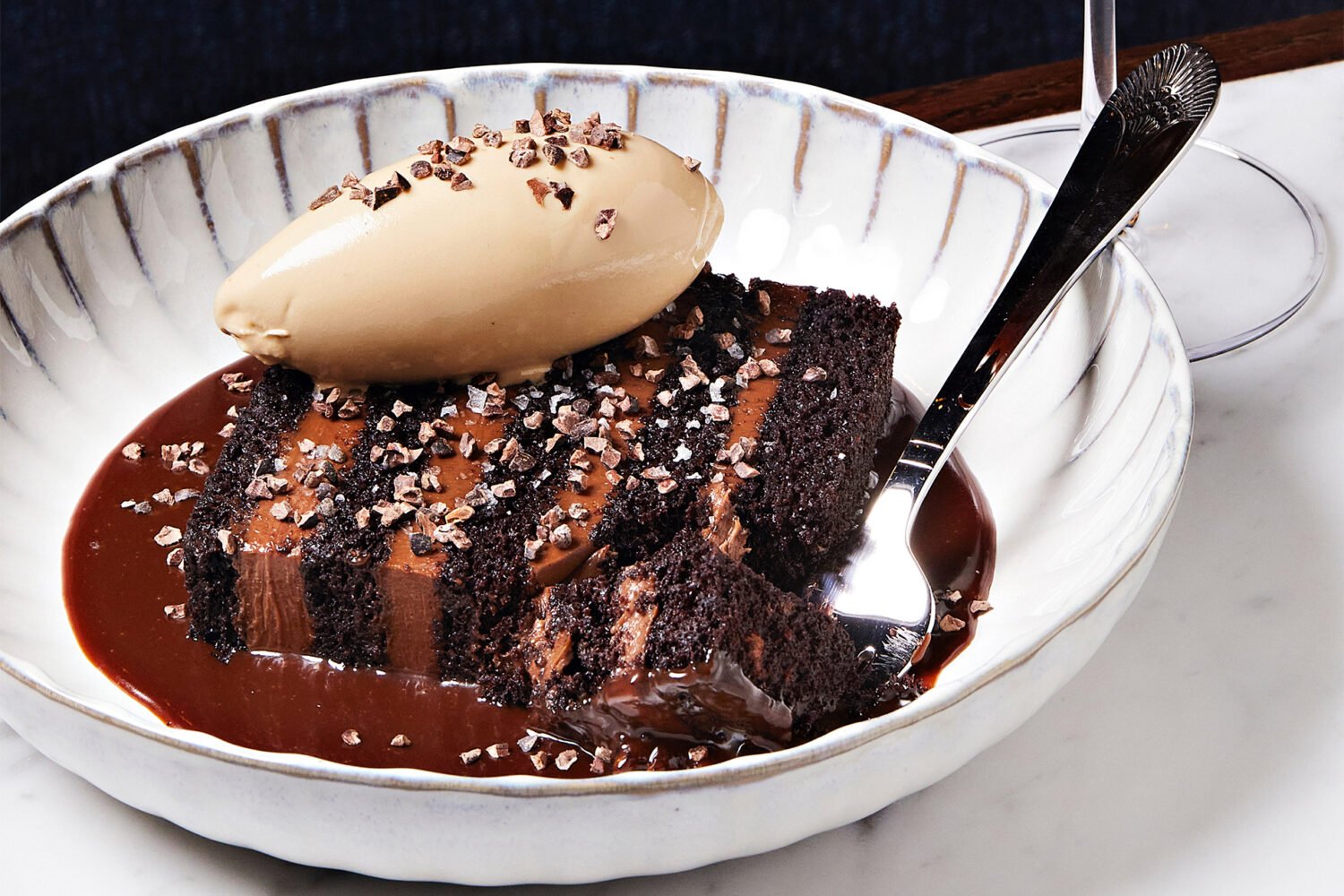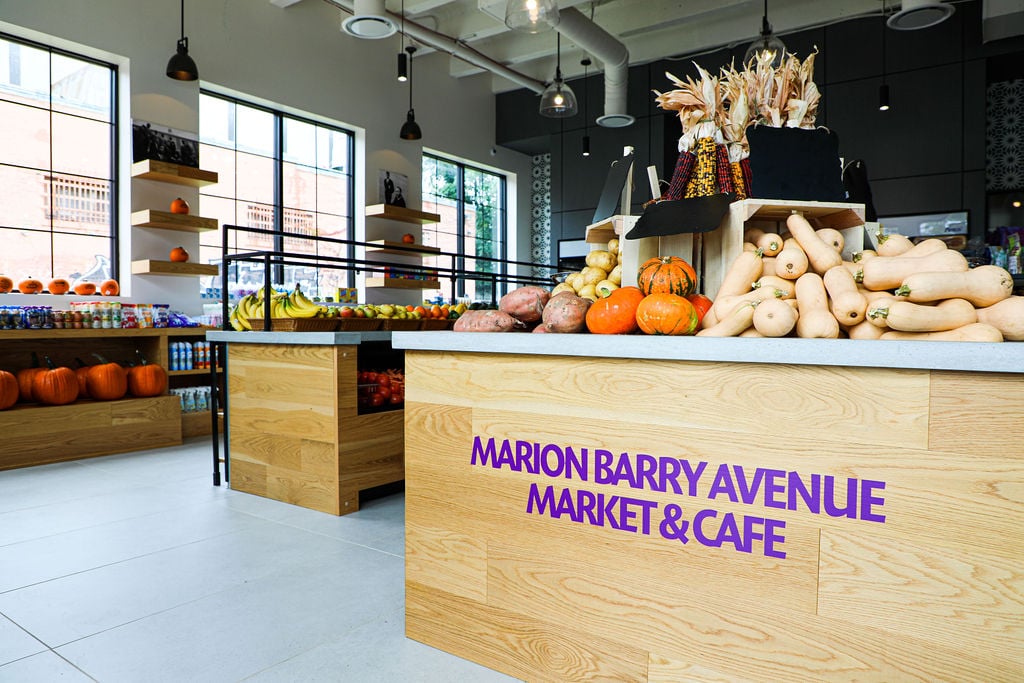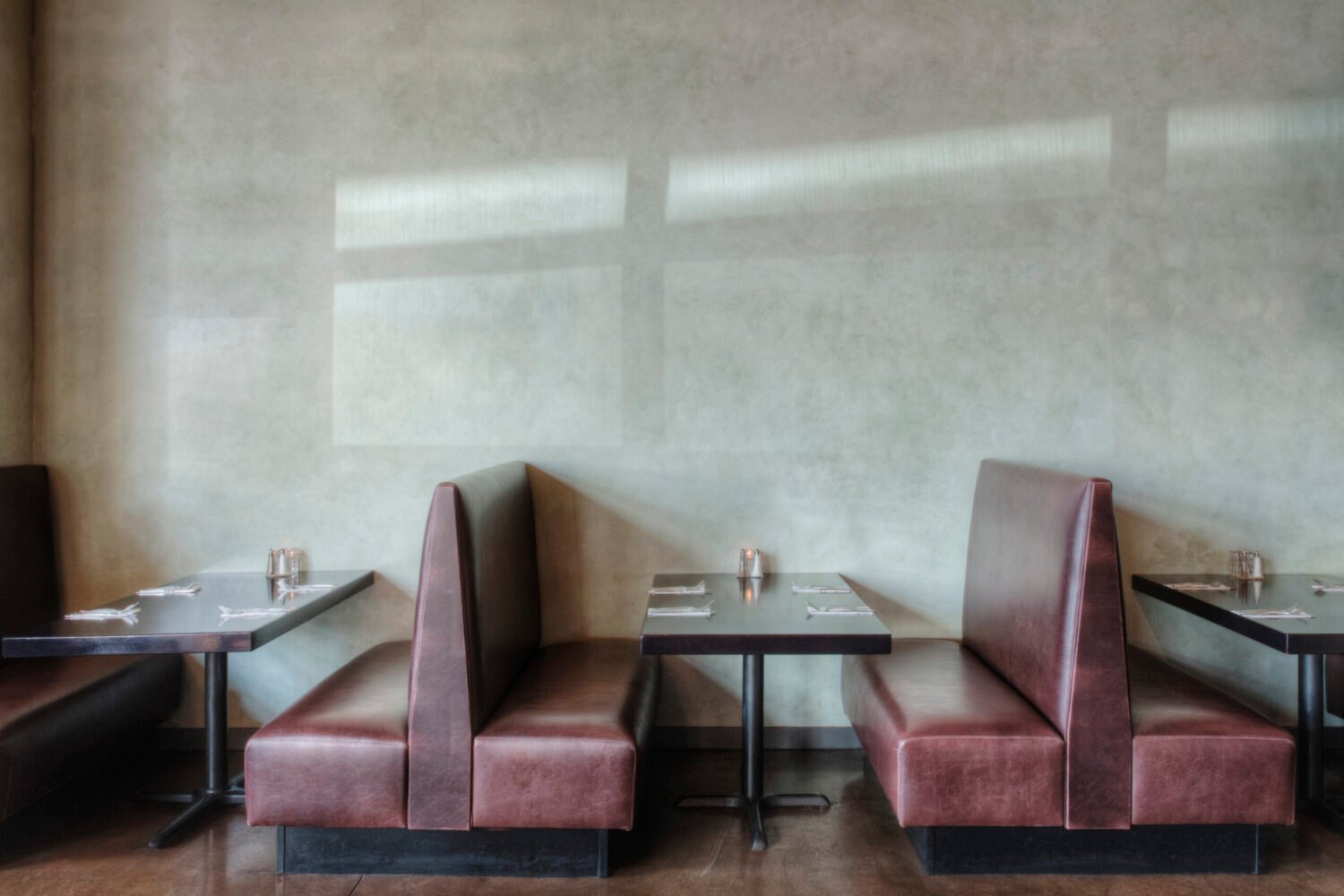Washington Post food critic Tom Sietsema is stepping down after more than 25 years on the job and revealing his face publicly for the first time. We chatted with him about the most memorable of his 1,200 reviews, his best disguises (not the fake teeth), and what’s next.
I’m sure you’ve been told a million times over the years that you have the dream job. Why leave now?
Last year, I filed my 25th dining guide and I thought if it all ended right now, I’d be fine. I’ve been able to travel and write stories that I thought were important and review all sorts of restaurants all over the place. But I stayed on.
I was over in Portugal on vacation, and I got this call from [then-Food Editor] Joe Yonan, who said, ‘Hey, I didn’t want you to be surprised, but the Post is offering buyouts.’ As we know, the last buyout was two years ago, and for someone in my position, with my tenure, it was like two years pay and two years insurance. This time around, it was less. And I thought, ‘You know, I am 64, I’m going to be 65 in March, I might not get offered this kind of deal again, right?’ I thought I could use it as seed money for whatever else I wanted to do.
I was in Lisbon, having just been to the MAD Symposium, and José Andrés was giving a speech with Rene Redzepi, and one of the things he said that I scribbled down was ‘Dream out loud.’ I know it sounds cliché and Oprah-esque and everything, but it was like, ‘Yeah, yeah, I’ve got to do that.’
I will say, I feel I have been treated really well at the Post. I still believe in the brand. Every media is suffering a lot right now, right? I wanted to leave. I don’t want to be the bitter guy to leave.
Tell me more about the decision to finally reveal your face.
When he was still there, Hank Stuever, who was the features editor, said, ‘Just do me a favor. When you leave, let us take a good picture of you.’ I just wanted to go stage left, sort of. I feel a little bit shy about that.
But now I feel great about it. On my way to dinner last night, I had two people on the sidewalk say, ‘Hey, you’re the food guy!’ So it was kind of nice. I don’t know how long that’s going to last, but it was really sweet. I was just tickled. It feels super liberating.
I know people are obsessed with your occasional disguises. What have been your favorite disguises over the years?
I wore a modified fat suit to Citronelle because I knew that Michel Richard and his staff there knew me. I went with another couple who had never been there before, and I used their names on the reservation. I had a new and pretty good wig and darker glasses. And I told everyone what to order ahead of time, and someone actually ordered for me because I’d done some radio and stuff like that. So that was kind of fun to get in and out and not be recognized.
One of my worst: When Roberto Donna had the restaurant-within-a-restaurant at Galileo. He had this long tasting menu, and I remember the third course was this Italian wedding soup. Steamy, steamy, steamy. My mustache started peeling. A friend told me, ‘You have to go to the bathroom, your face is falling off.’
But the hardest one was probably when I went to Range. I had these false teeth. They weren’t really attractive. They weren’t like Halloween bad, but they were bad. I remember the problem with that is that I couldn’t actually eat with them. So when I tried the food, I’d have to put my fake teeth in my napkin and then quickly chew something and put the teeth back in. I think I went home hungry. I didn’t want to eat that much.
Now that you’ve given up anonymity, can you reveal some of your fake names? How do you decide on them?
Some more recent ones, I wanted them to be gender neutral, because if I was with a woman and I suspected that they knew who I was or something, I wanted her to be able to pay the bill.
I think I had a Martin Hepburn. Lee Smith. Nick Taylor.
For a while—I just thought this was hilarious—I had I. Don Cook. Like ‘I Don’t Cook,’ if you say it really fast.
I used friends’ names for all the times that I went to the Inn at Little Washington or some of these bigger restaurants where you write about them once a year. And they remembered all those names. So when those people went back subsequently—not just the Inn, but other places—they always expected I would be in tow, too. And friends would say, ‘Oh, the service is really great and everything, but I think they expected you to be there.’
Do you think your successor should attempt anonymity in the same way that you did?
I think that is up to him or her. You know, a lot of established critics have come out over the years. I never want to write that story, like, ‘I’m out!’ But I’m leaving, so I’m out there for a different reason.
I can argue the advantages and disadvantages of both. I do think there’s something kind of fun about being as stealth as you can. With technology and everything, it’s really hard to maintain anonymity. I always felt like I had a real advantage in that I went to most restaurants at least three times. At least over one of those visits, somebody wouldn’t recognize you. I think it’s important not to make a reservation, obviously, in one’s own name. I think the element of surprise is super important.
But I do kind of admire what some critics have done, like, ‘Hey, you know, it wouldn’t be fair if we didn’t publish my picture, because some people know what I look like and some people don’t. So here I am to the world.’
After 1,200 reviews, are there any in particular that are most memorable to you?
Well, the one I’m probably best known for is the original [zero star] Founding Farmers review. I mean, I still get that from people: ‘You’re the guy who wrote about Founding Farmers.’ I didn’t just write restaurant reviews. Two stories that I’m really proud of. One is when I spent a year going across the country, rating [the best food] cities. The Post gave me the great opportunity to spend a week in each city and really delve into them, not just parachute in and go.
I loved, loved, loved doing my story on dishwashers. That was so important to me. Dishwashing is a gateway to so many other paths in American life. You really can make it here if you work hard and you have a little bit of luck, and restaurants are really a gateway to potential success in the United States. I loved getting behind the line, getting dirty and having sharp objects thrown at me and getting wet. We all wore Hefty trash bags. At the end of the night, it looks like someone vomited all over you. It’s hot. The floors are sticky. It was nuts. But I loved doing that story.
You really have a pulse on what diners are feeling from your weekly chat. What is the complaint about restaurants that’s come up the most over the years?
People hate noisy restaurants. And I’m not talking about old people either. I’m talking about young people. I mean, people all say, ‘Oh, I’m 29 or I’m 33,’ It’s a universal problem.
Second and more recently would be all the surcharges. People who might not know better say, ‘Charge us what you need to stay in business.’ And I’m like, OK, but not everyone’s ready for a $50 roast chicken, you know? And who wants to be the chef in the neighborhood to raise the prices like that? I love the fact that so many restaurants now put a [20 percent] hospitality charge on. I don’t mind that, because that’s what I would typically pay. That’s what most people should pay when they’re going out. It’s an expensive business. And I do think that Americans have eaten way too cheaply for way too long.
Everyone wants people to make a decent living wage, but if you’re going to charge us 20 percent, put it on your website, announce it at the table, circle it on the bill. Way too many of us—raising my hand here—have given people 40 percent when they meant to do 20 because someone hasn’t told them.
What are you most looking forward to about retiring your critic badge?
I just feel liberated. I judged this wagyu beef cooking contest at the Japanese embassy and I could do it and I didn’t have to wear a mask or a ball cap or anything like that. I talked to two chefs who I’ve only talked to on the phone before. I look forward to talking to these people one-to-one in more of an acquaintance or friendship way than I have before. These people have fed me, us, DC, other diners so well for so many years, and I can’t wait to meet them in person without hiding or some reserve.
What’s the thing you’ll miss the most?
It would be easy to say the expense account, but I have budgeted money, so I’m still going to eat out enough. It was great as a critic because no one turned you down for dinner. Everyone wanted to go on a restaurant review. I was always surprised. You’d meet people and they worked at White House, and you’re excited about this and you meet celebrities and newsmakers all the time? But there’s something about being a food critic that people have a million questions about.
Ed Lichorat, my partner, and I have casually been entertaining the last year or so. We call it Lamb Burger Nights. Pop open a good bottle of wine. I’m just making lamb burgers—lamb burgers are sexier than hamburgers. A salad, maybe not an appetizer, but definitely a really good dessert.
I want to recreate those kinds of joyful moments at the table in my apartment. I can only seat six right now. I want to bring people together who otherwise might never meet each other, including at least one person who could really benefit from meeting these people. It sounds too hoity-toity to call it a salon, but I’m going to call it the non-salon. The sky is falling in some ways and I feel like we all feel like, ‘How do we get out of this?’ If you get a bunch of smart people together, and at least one of those people has a pearl of advice to dispense where we can all enhance or affect the positive change, I think it will have been worth it.
I hope this idea catches on. I hope other people start doing it too in their own way. But I’m going to do it once a month, possibly twice a month, for a year. I want to probably document what happens and keep a little scrapbook. I don’t intend to monetize this. I might even have readers over if someone wrote me a great email.
One of the tricky things of being a critic is you’re always trying new restaurants and you don’t get to be a regular anywhere. Are there any specific places where you see yourself becoming a regular?
Yes. The Bombay Club. I love Indian food. Chicatana, my favorite Mexican restaurant, which just relocated. I love those guys and what they do and their work ethic. And Hitching Post. I’ll still go back there. It’s one of my favorites and it really helped me all during the pandemic. And then probably Bucks Fishing and Camping. I love the bar there for sure.
You’ve made it clear you’re not retiring. What’s next for you?
I’m going to create, probably, a newsletter. I do have a book in me at some point. It’ll be a children’s book with one recipe. Imagine that: a gay guy with no kids writing a children’s book in a genre with which I have no experience. But you know, I think I have a good little outline for it. I’m looking forward to that. I would be open to doing a podcast or something on TV. I’m just open to possibilities. Sometimes when you make these leaps, the world kind of opens up to you in a way.
Do you imagine that restaurant reviews might be a part of that newsletter or is that chapter closed?
It’s going to be food and travel and lifestyle related. I will probably still tweet and Instagram about meals and funny things that have happened to me. I’m still gonna keep that up, but I can be a little more open this time too, which is great. I definitely have plans. I’m not someone who likes to sit back and chill. I want to keep this momentum going.
This interview has been edited for length and clarity.

